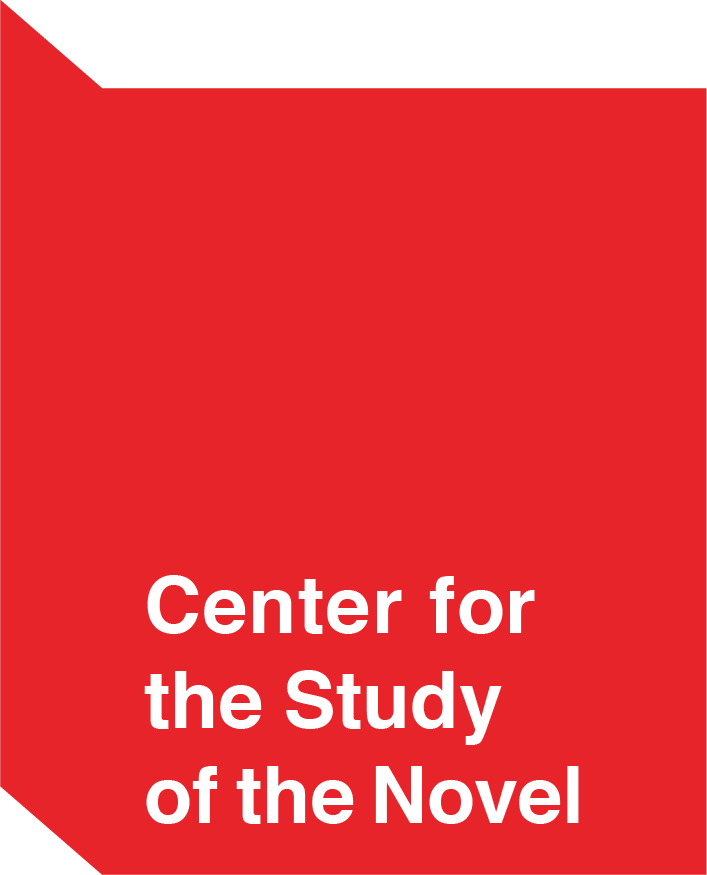History
CSN was founded in 2000. Under the first director, Franco Moretti, events from 2000-2004 charted the contours of the novel across geography and history. Under the leadership of Margaret Cohen, director from 2004-2007, the center focused on how the novel edges other media, genres, and forms.
Alex Woloch directed CSN from 2007-2010, and started the Working Group on the Novel, a workshop for graduate students and faculty concentrating on narrative form, genre and the history and theory of the novel. Nancy Ruttenburg organized three conferences from 2010 to 2013: Is the Novel Secular?; Is the Novel Democratic?; and What is the Nature of Literary Being? The papers given at Is the Novel Democratic? were collected for a special issue of the journal NOVEL: A Forum on Fiction. Professor Ruttenburg also introduced two initiatives, the Undergraduate Colloquia and the Stanford-Berkeley Liaison.
CSN’s 2014-2017 director, Mark McGurl, organized the Sciences and Fictions conference in 2014, Novel Marxisms in 2016, and Novel Institutions in 2017. Nancy Ruttenburg returned as CSN director for the 2017-2018 academic year: she organized Novel Dostoevsky. Under the second term of her directorship (2018-2024), Margaret Cohen expanded the types and frequency of events to include constituencies interested in literature and narrative across Stanford in both English and the DLCL. It was her initiative to create an online record events, including the podcast series CSN Café, now available on iTunes or on our podcast page.
Under its current director, Héctor Hoyos (2024-), the Center features a renewed interest in fundamental questions of literary theory; the role of English as global cultural broker; and cross-generational scholarly exchange. In 2025, our convening topic was The Novel as Theory. In 2026, it will be The Novel and Doublespeak.
About Us
Throughout its history, the Center for the Study of the Novel has promoted conversation on the practice and interpretation of the novel form across history and cultures. The CSN is committed to studying literature as a primary form of human expression and as an object of interdisciplinary analysis. These combined perspectives demonstrate just how much literature, and the novel in particular, may tell us. The CSN is therefore also committed to studying the practice of literary criticism and theory, and its history of illuminating the novel in relation to society and culture.
Programming at the Center extends the scope of novel studies to include the many forms that narrative aesthetics have taken across cultural contexts. Narrative traditions which precede or parallel the global rise of the novel; narrative forms which cross distinctions of media and prestige; and the methods and cultural histories which attend their valuation, all fall within the circle of the Center’s concern. Under its current director, Héctor Hoyos, the Center features a renewed interest in fundamental questions of literary theory; the role of English as global cultural broker; and cross-generational scholarly exchange.
Programs
CSN offers a series of events each year, bringing speakers from across the US and beyond to address audiences drawn from Stanford and from across the Bay Area. These events include our annual series Books at the Center, which brings authors of recent influential critical books to discuss their work in the company of distinguished critics. The Ian Watt Lecture in the History and Theory of the Novel presents an annual opportunity to discuss core intellectual issues surrounding the novel and its study, commemorating the renowned Stanford professor whose work has profoundly influenced literary study for nearly 50 years. Graduate students in Stanford’s Department of English and Division of Literatures, Cultures and Languages, select the speaker. Speakers are not limited to works of any specific nation, language, or historical period and are encouraged to engage critical theories of the form and to contest definitions of the novel itself. Past speakers have included Peter Boxall, Judith Butler, Caroline Levine, Wai Chee Dimock, Amitav Ghosh, Rita Felski, Sianne Ngai, Fredric Jameson, Nancy Ruttenburg, Benedict Anderson, Ngugi wa Thiong’o, Zadie Smith, J.M. Coetzee, Michael McKeon, Nicholas Dames, and Amanda Anderson.
The Center’s Working Group on the Novel provides an opportunity for students and faculty in different departments whose work is oriented toward the history and theory of the novel to develop a sustained conversation through the academic year. One of the goals of the group is to address the shift in novel studies, both toward less canonical European and American texts and toward novels outside of Western contexts. Workshop meetings typically include discussion of both a work-in-progress and the novel, or section of a novel, on which this work is based. Interlocutors from other universities are also welcome.
Center for the
Study of the Novel
Margaret Jacks Hall, 460-411
Stanford University
Stanford, CA 94305-2087
Director
Graduate Coordinators
Alexia Ainsworth
Enver A. Akova
Programs
Department of English
Division of Literatures,
Cultures, and Languages
Stanford Literary Lab

